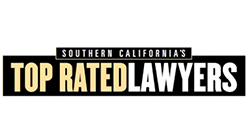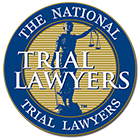What Is and What Isn’t Embezzlement?
Imagine this: You’re looking through your company books and notice some funds missing. Only you and your business partner have access to the bank account, and you didn’t take any money out, so…there’s only one person to point the finger at.
When confronted, your partner says it was “just a loan” and he was going to pay it back. Now, borrowing money from your business isn’t impossible, it just needs to be done in a certain way. Because if you borrow money without proper authorization, it’s not a loan. It’s embezzlement.

Here’s the proper definition, in case anyone is curious: The dishonest misappropriation of money or property by a person who gained access to the money or property by virtue of employment.
Usually when we think of embezzlement, we think of big corporations, big money, and things like that. But interestingly enough, the law was originally aimed at servants working at English manors, because there was a gap in the larceny law that didn’t address that the accused had legal access to what they stole. And even if they did steal it, they did not gain possession of the goods illegally. So while the housekeeper had the key to the larder and access to the food, she shouldn’t have taken the ham home with her. That equals embezzlement.
Today, there are many types of embezzlement that the courts deal with, from the example we gave above to the cashier taking a few dollars out of the till now and then. Embezzlement can be covered under certain federal laws, but mainly it is covered by laws created by each state. While there are, of course, differences in the laws from state to state and state to federal, but in general, a prosecutor has to show that an employee’s position enabled them to possess the goods or funds, or that the employee had the authority because of their position to exercise substantial control over the goods or funds. What constitutes “substantial control”? The courts determine that by evaluating the employee’s job title, job description and the company’s practices.
So, if your business partner had access to the company money for legitimate reasons, i.e. to do his job for the company, and started “borrowing” money for his own personal use, it could indeed be embezzlement. But there’s another criminal act that it could be instead: fraudulent conversion. That’s when an employee gained possession of company money through deception-it’s slightly different than embezzlement, especially in the eyes of the law.
One more thing: If the partner did get a loan agreement from the company to take the money, but you can prove that he never intended to pay the money back, it could constitute fraudulent conversion, or just plain fraud, depending on the state.
And a funny thing that people thinking about embezzlement should consider: The IRS considers that money income. So if you don’t pay income tax on that money you “borrowed”, whether you signed a loan agreement or not, you could get into trouble come tax day.
But the bottom line is this: If you think someone in your company is committing a criminal act, that’s a serious situation that needs to be addressed. Contact us for a free consultation: 714-713-4525














